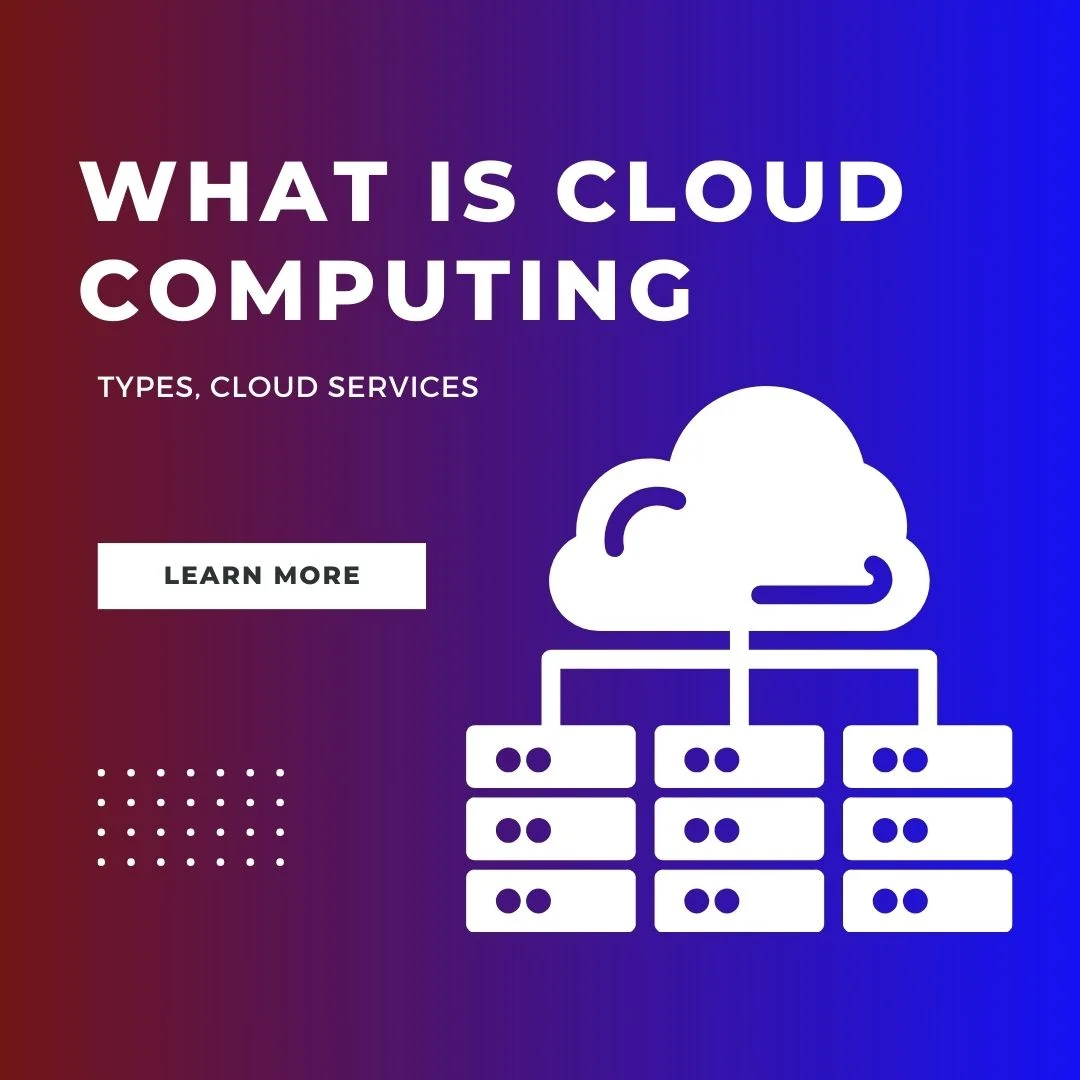What is Cloud Computing, Types, Cloud Services, Benefits, Characteristics of Cloud Computing These days cloud computing is being adopted by every company, be it an MNC or a startup, many companies are still turning to it because of its cost cutting, less maintenance and increased data capacity with the help of servers built through cloud providers. The reason behind this huge shift of companies from on-premise servers to cloud providers is the services provided by them on a ‘pay as you go’ basis, meaning you only pay for the service you are using. The disadvantage of on-premise servers is that even if the server is not in use, the company has to pay for it.

Cloud computing is the delivery of various services over the internet, including storage, processing power, and applications. Instead of maintaining physical servers or personal devices for these resources, users can access and manage them through the cloud, which is a network of remote servers hosted on the internet. Cloud computing offers several benefits, such as cost savings, scalability, flexibility, and accessibility.
Benefits of Cloud Computing
Cost Efficiency: Reduces the capital expense of buying hardware and software. Pay-as-you-go or subscription models further reduce costs. Scalability and Performance: Can scale resources up or down based on demand, ensuring performance consistency.
Business Continuity: Offers robust disaster recovery and backup solutions, maintaining business operations in case of failure.
Collaboration Efficiency: Enhances collaboration through shared access to files and applications from anywhere in the world.
Automatic Updates: Providers manage regular software updates and maintenance, ensuring the latest security patches and features are available.
Cloud computing has transformed the IT landscape, offering flexible, scalable, and cost-effective solutions to meet the evolving needs of businesses and individuals.
Characteristics of Cloud Computing
- Agility
- High Availability and Reliability
- Services in the pay-per–use mode
- Low Cost
- Maintenance
- Device and Location Independence
- Multi Sharing
- High Scalability
Types of Cloud Computing
We are discussing the types of Cloud Computing like Public, Private and Hybrid, Read the full article for Types of Cloud of Computing in brief.
What is Public Cloud Computing?
Public clouds are controlled and operated by third-party cloud service providers who provide computing resources such as servers and storage over the Internet. Microsoft Azure is an example of a public cloud. With a public cloud, all hardware, software, and other supporting infrastructure is controlled and managed by the cloud provider. You access these services and manage your account using a web browser.
What is Private Cloud Computing?
A private cloud refers to cloud computing resources that are used only by a single business or organization. A private cloud can be physically located at a company’s onsite datacenter. Some companies also pay third-party service providers to host their private clouds. A private cloud is one in which services and infrastructure are maintained on a private network.
What is Hybrid Cloud Computing?
Hybrid cloud combines public and private clouds, which are tied together through technology that allows data and applications to be shared between them. By allowing data and applications to move between private and public clouds, a hybrid cloud gives your business greater flexibility, more deployment options and helps optimize your existing infrastructure, security, and compliance.
Types of Cloud Services in Cloud Computing
We have mentioned all types of Cloud Services in Cloud Computing like IaaS (Infrastructure as a Service), PaaS (Platform as a Service) and SaaS (Software as a Service), Kindly read the full article.
What is IaaS (Infrastructure as a Service) in Cloud Computing?
Flexibility and control: IaaS provides virtualized computing resources such as VMs, storage, and networks, allowing users to have control over operating systems and applications.
Reducing hardware costs: IaaS provides cost savings to businesses by eliminating physical infrastructure investments, making it cost-effective.
Scalability of resources: Cloud helps in scaling up or down hardware resources as per demand, thereby providing optimal performance with cost efficiency.
What is PaaS (Platform as a Service) in Cloud Computing?
Simplifying development: Platform as a Service provides a system for application development by abstracting away the infrastructure involved. It helps developers to focus completely on the application logic (code) and background operations are completely managed through the AWS platform.
Increasing efficiency and productivity: PaaS reduces the management of infrastructure overhead, speeds up execution times and brings updates to market faster by streamlining the development process.
Automating scaling: By managing resource scaling, program workload efficiency is guaranteed through PaaS.
What is SaaS (Software as a Service) in Cloud Computing?
Collaboration and Access: Software as a Service (SaaS) helps users to easily access applications without the need for local installation. It is completely managed through AWS software as a service over the internet which promotes seamless collaboration and ease of access.
Automation of Updates: SaaS providers manage software maintenance operations with automated new updates, keeping users updated with new features and security patches.
Cost Efficiency: SaaS serves as a cost-effective solution by reducing IT support overhead by eliminating the need for individual software licenses.
Important Links
| Home Page | Click Here |